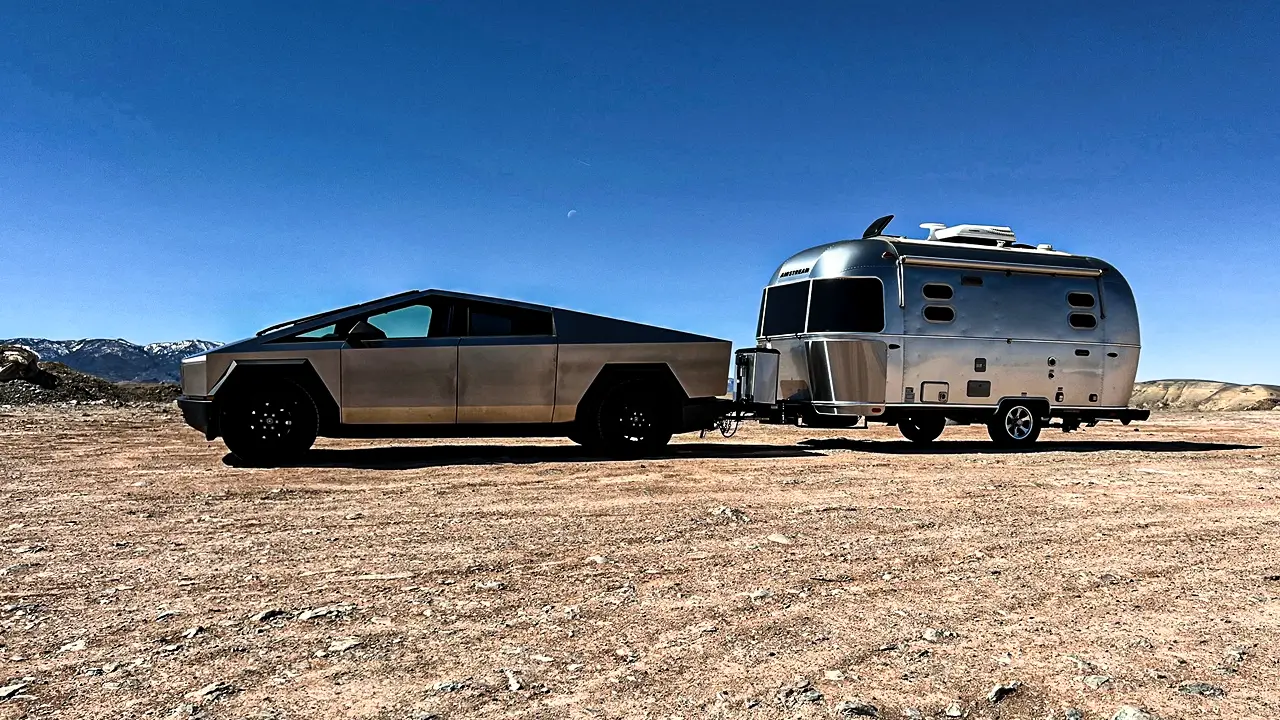EVs are no longer limited to commuting in cities. Nowadays, many EVs are as strong and reliable as gas-powered vehicles for towing. They are perfect for towing trailers, boats, or tents since they combine power and environmental sustainability. Because of this change in functionality, EVs are now more appealing to people who lead active lives or have demanding needs.
Electric Cars That Can Tow: Power Meets Sustainability
Instant Torque
Instant torque is one of the EVs’ main advantages. Even when a trailer is mounted, electric motors provide powerful and smooth acceleration by instantly delivering maximum power. Compared to gas-powered vehicles, this makes it easier to start on hills or to tow large objects.
Range and Towing
Even while EVs are excellent at delivering power, hauling reduces their range. More rolling resistance and aerodynamic drag result from a larger weight, which uses more energy. When towing, an EV with a 300-mile range rating may only go 150–200 miles.
It implies that preparation is essential for towing excursions. Assuring that there is infrastructure for charging along their routes and the need to stop regularly for charging is vital.
Best Electric Cars for Towing
- Tesla Model X: Well-known for its performance and luxury, it has a 5,000-pound towing capacity.
- Rivian R1T: A tough electric truck that can pull 11,000 pounds for outdoor enthusiasts.
- Ford F-150 Lightning: A multifunctional electric truck pulling up to 10,000 pounds.
- Hyundai Ioniq 5: A more compact choice that can pull up to 3,500 pounds and is appropriate for light trailers.
Charging Challenges While Towing
It needs to be recharged because towing consumes more energy. Although accessibility varies by location, fast-charging stations minimize downtime. Some EVs, like the Ford F-150 Lightning, have advanced trip-planning capabilities that help identify charges along a towing route.
Future charging technologies, such as wireless charging pads and ultra-fast charging networks, are intended to ease these difficulties. Until then, careful planning is still necessary.
Towing Features in EVs
Manufacturers create EVs with specific features for towing:
- Towing Modes: When pulling loads, maximize stability and power consumption.
- Trailer Sway Control: Helps stabilize a trailer when turning sharply or in crosswinds.
- Enhanced Braking Systems: Through energy recovery during slowing down, regenerative braking increases efficiency.
Even for novice drivers, these features guarantee a more secure and seamless towing experience. The Rivian R1T, for instance, has several drive modes that improve control by modifying the vehicle’s performance according to the terrain and towing conditions.
Cost Efficiency of Towing with EVs
EVs can save money over time if they are sometimes more expensive. Generally speaking, electricity is cheaper than gasoline or diesel, especially when charging at home. Compared to ICE vehicles, EVs have fewer moving components, which results in lower maintenance costs.
Limitations of Towing with EVs
EVs have drawbacks when it comes to towing despite their benefits:
- Reduced Range: There is a 50% reduction in range with heavy loads.
- Charging Time: Refueling a gas-powered car takes less time than rapid chargers.
- Limited Availability: Because not all EV cars can tow, purchasers have fewer alternatives.
These challenges highlight the importance of selecting the right EV for specific towing needs and preparing adequately for long-distance trips.
- Audi GT50 Concept: A Loud Reminder of Why Car Enthusiasts Fell in Love With Audi
- Nearly 30% of UK Drivers Believe Car Tax Should Be Based on Mileage — Survey
- Why Planes and Boats Escaped the Luxury Tax But Cars Didn’t
- Australia’s Headlight Confusion: Authorities Warn Drivers After Viral $250 Headlight Rule Goes Wild Online
- 2025 Hyundai Venue Facelift Launched in India – Full Details, Variants, and Price
The Role of Battery Technology
EV hauling capabilities are expected to improve with advancements in battery technology. For example, solid-state batteries promise quicker charging times and a higher energy density. When towing, this could reduce range issues.
Furthermore, weight optimization and upcoming advancements in battery cooling systems will improve overall performance and efficiency under load.
Future Outlook for Towing EVs
EV towing has a promising future. Automakers are spending money on technology that increases range and tow more. Bi-directional charging and trailers with integrated solar panels are two innovations currently being explored to increase hauling efficiency.
It turns out that electric automobiles can tow just as well as conventional cars. EVs are satisfying the needs of contemporary drivers because of their strong motors, unique towing capabilities, and dedication to sustainability. Even if issues like range reduction still exist, continuous technological developments have rendered towing EVs more feasible.
Range, towing capability, and charging accessibility are important considerations when selecting an EV for towing. Nonetheless, EVs provide a clean, practical, and progressive means of transporting people into the future for those prepared to adopt this novel option.
